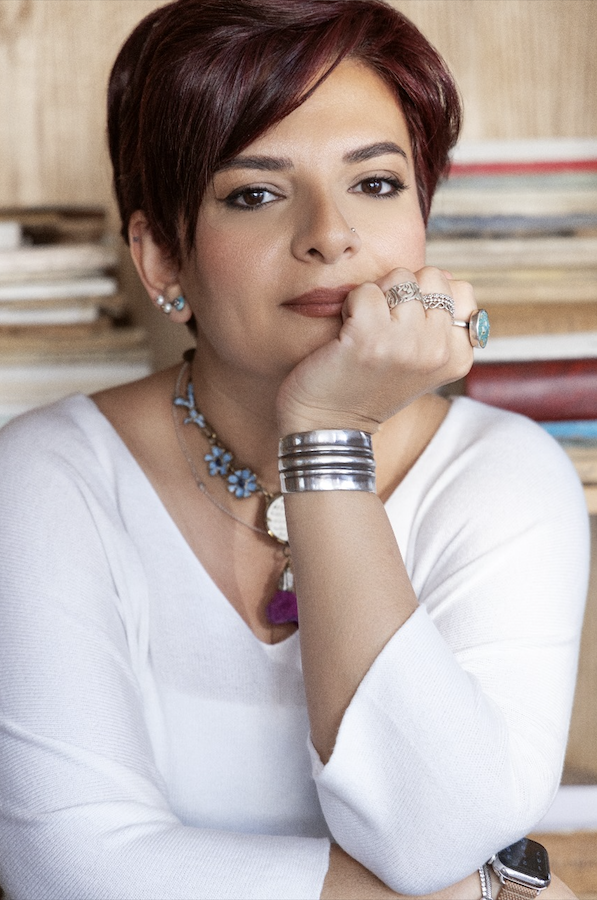JEDDAH: Fifteen new and emerging female filmmakers from Saudi Arabia are about to get the opportunity of a lifetime: mentorship from famed Egyptian screenwriter Mariam Naoum, as part of a new training program from Netflix run in partnership with Naoum’s Sard Writing Room and NEOM Media Industries.
The first of the Saudi Female Future Filmmakers Program’s two phases will launch in September.
“The first phase is an intense introduction to the processes of writing, directing and production. It will involve extensive time being spent with all the participants taking them through the basics,” Naoum tells Arab News. “And then the second phase will be more hands-on work done in groups. The participants will be separated or grouped into teams of four or five, and each group will write their own projects or their own short film.”

Mariam Naoum. (Supplied)
Participants will then be given the opportunity to pitch their scripts to a panel of experts in a simulation pitch exercise at the upcoming Red Sea International Film Festival. They will also be guests at the festival, attending workshops and panel discussions as well as networking events.
Sard, or the Sard Writing Room, was founded by Naoum in 2016 and is a “dedicated hub” for scriptwriters that has so far spawned 17 TV series and a feature film. Sard is billed as “a safe space for aspiring screenwriters to develop their projects, improve their writing skills, and practice their creative freedom.”
Netflix previously partnered with Sard to launch the Because She Created writing program in Egypt to train women in writing and develop their storytelling and creative expression skills.
“Sard believes that expressing oneself through writing is the first step to self-discovery and we’re proud to have discovered talent through this program that we feel will one day become the scriptwriters of the future,” Naoum said at the time.
When asked about the kind of talent they are looking to attract for the new Saudi-based program, Naoum said: “We are looking for passionate participants. We want to discover indie filmmakers or women who are now looking at filmmaking as a career option and are looking to discover their abilities to express themselves through writing, directing and production.

The first of the Saudi Female Future Filmmakers Program’s two phases will launch in September. (Supplied)
“We are looking for women who want to tell their own authentic stories, and through the application process, we are trying — through the questions — to discover that with them. The application form features questions like their favorite films, their favorite books, their favorite story that changed the lives, a moment in their life that they appreciate… We are trying to discover them as humans and discover their passion and the reason behind why they are looking into this.”
Naoum — known for her work on films like “One-Zero” and “Between Two Seas,” as well as TV series including “Take Care of Zizi” — has garnered acclaim for writing stories that focus on issues facing everyday people, especially women. Most of her work is based on true stories.
“I think this is my way to reflect on what is happening in the region and my feelings toward the society I am living in. I’m always reflecting on current happenings, how we arrived here — how did Egyptians end up at this point in this kind of situation in society? And then I want to share my thoughts with the audience,” she says.
Naoum is bullish about the prospects for the Saudi entertainment industry. “I think it has great potential because there is a will for doing things and creating opportunities and there is a true wealth in terms of a young generation of filmmakers. And I can see how they are investing in studying cinema with workshops and more. And I think this will lead to a new wave,” she says.
Applications for the Saudi Female Future Filmmakers Program are open until August 10 for women aged 21 and over, residing in Saudi Arabia with no prior experience working in the film and TV industry.


















